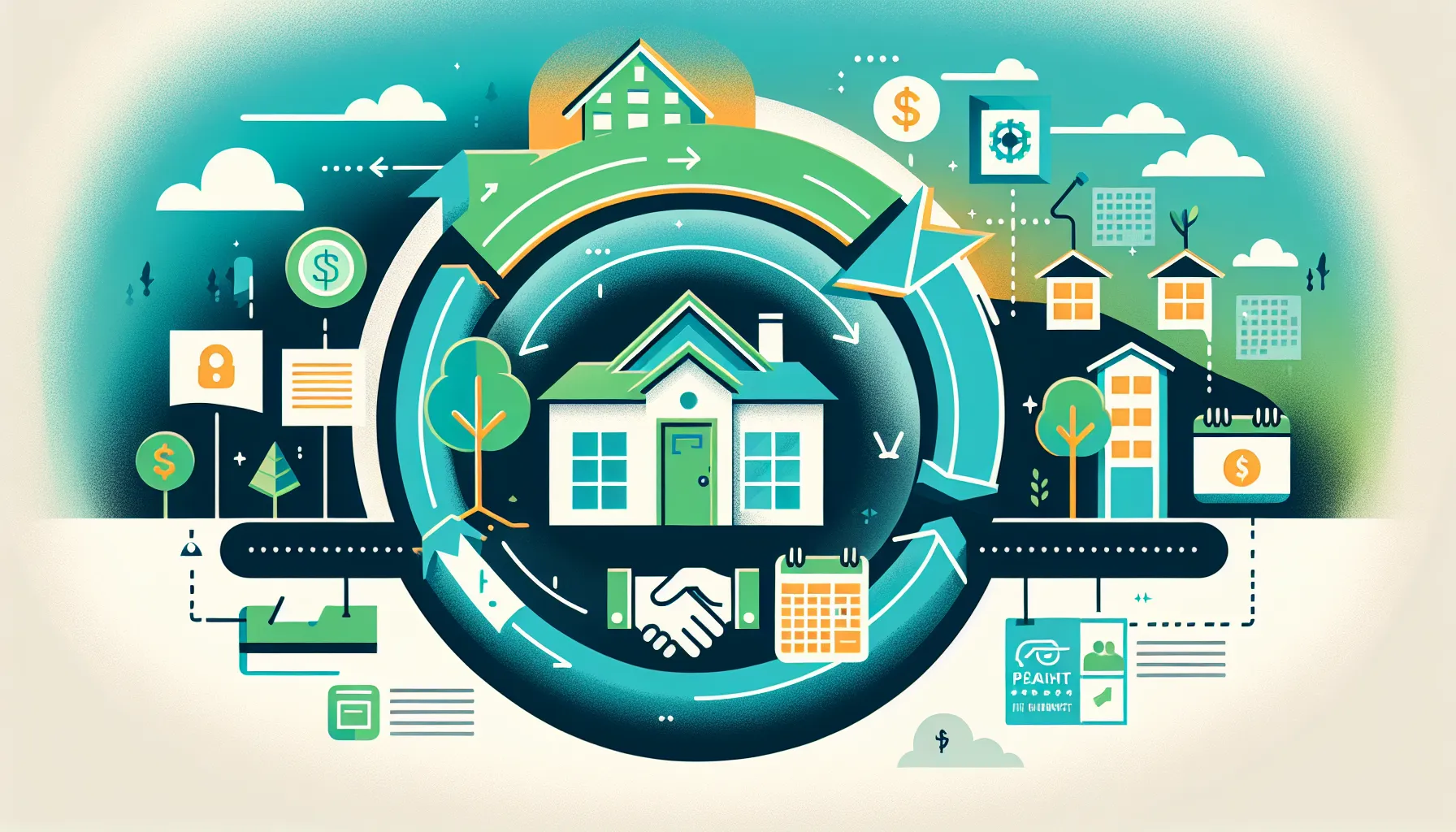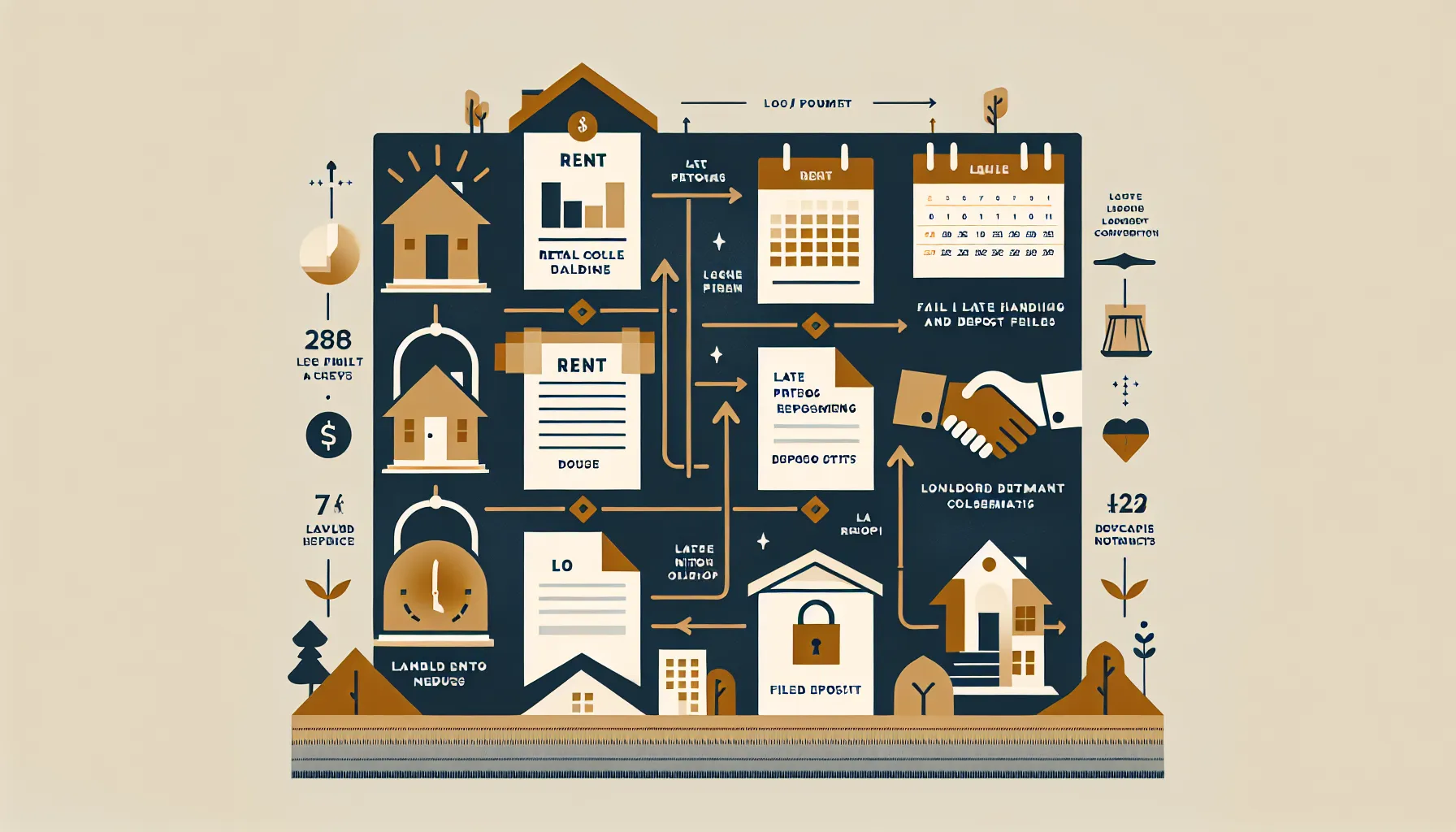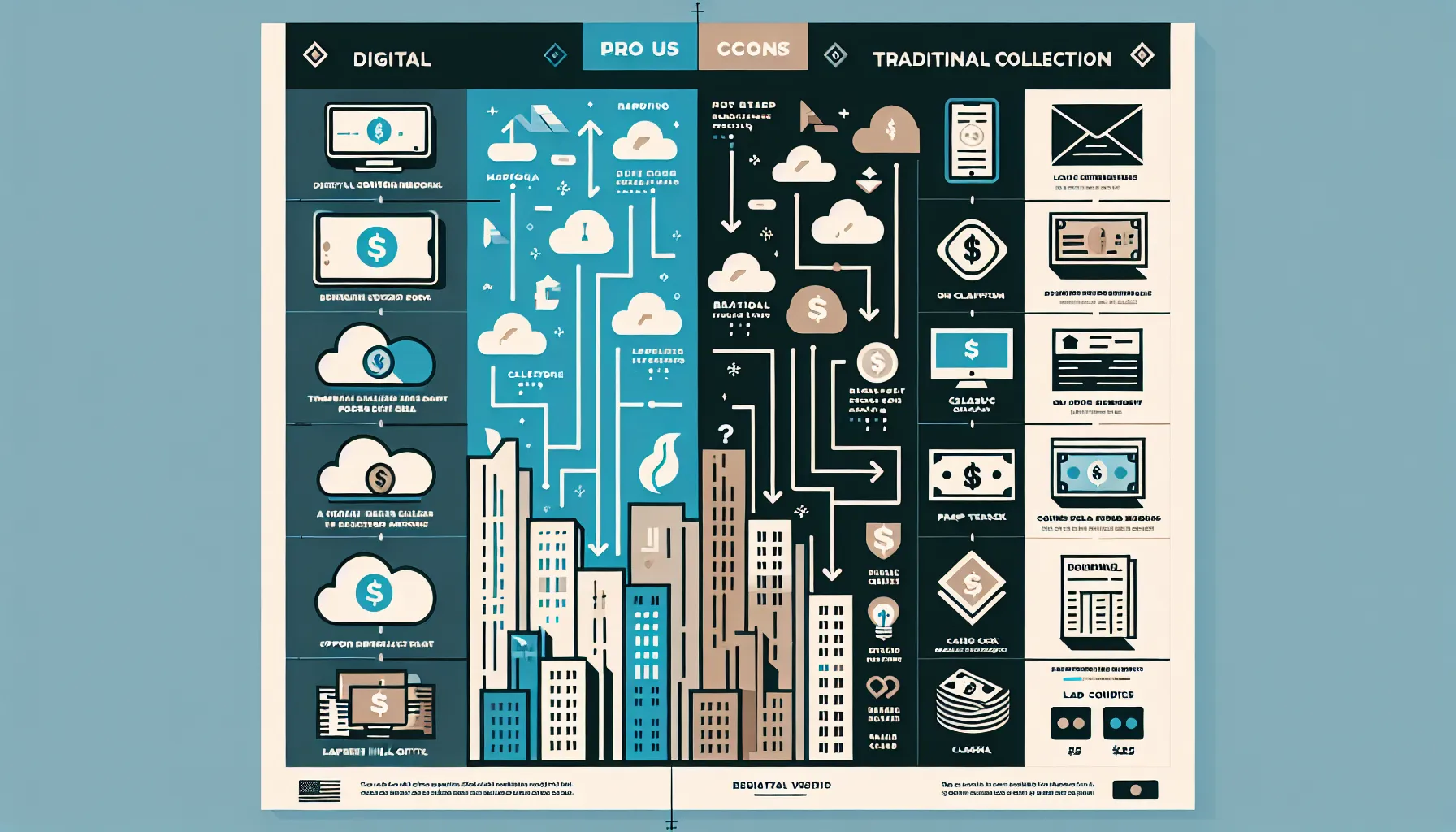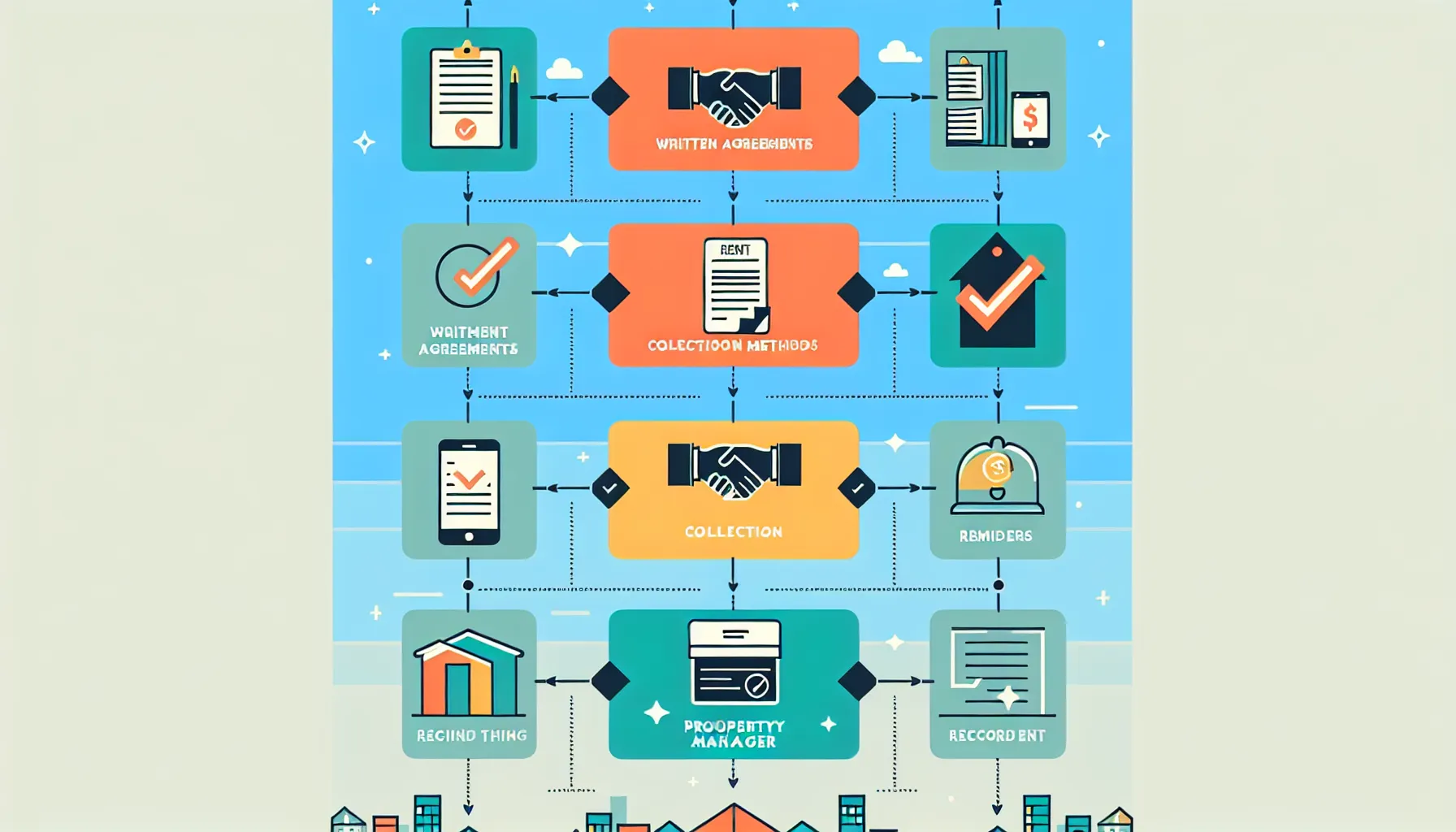Rent collection in Pleasant Hill, like anywhere else, can be a source of stress for both landlords and tenants. Maybe you’ve felt frustrated by late payments, unclear rules, or confusing payment processes. Or perhaps you’re just curious about the best way to keep things running smoothly for everyone involved. I understand how important it is to have peace of mind, whether you own a single rental home or you’re renting your first apartment. Wouldn’t it be great if the process felt simple and fair from start to finish? In this guide, I’ll break down what you need to know about collecting rent in Pleasant Hill, from understanding the basic legal requirements to choosing the right payment method. My goal is to make managing or paying rent straightforward and stress-free.
Key Takeaways
- Effective Pleasant Hill rent collection starts with clear written agreements outlining rent amount, due date, and late fees.
- Offering flexible payment methods—both digital and traditional—improves tenant satisfaction and ensures timely rent collection.
- Consistent record keeping and prompt communication help prevent and quickly resolve disputes between landlords and tenants.
- Following Pleasant Hill and California legal requirements, including proper notice and fair late fee policies, protects all parties.
- Automated reminders and professional property management services can simplify rent collection, especially for landlords with multiple properties.
Understanding Rent Collection in Pleasant Hill

For many landlords, collecting rent isn’t just about getting paid. It’s about building trust with tenants and keeping properties running smoothly. In Pleasant Hill, most rentals operate under established guidelines that protect both landlord and tenant rights. Rent collection routines play a big part in a property’s financial health and tenant satisfaction.
I often hear from property owners who want their money on time without tension. Tenants, on the other hand, want clarity and flexibility in payment options. When expectations are clear, the rental relationship is far more positive. That’s why rent collection isn’t only a mechanical process, it’s a human one, too.
Many rental owners, especially those managing homes from afar or with multiple properties, depend on consistent payment cycles. Solid collection systems help reduce late payments, prevent misunderstandings, and create a paper trail that serves everyone’s interests. Whether you self-manage or use a property management company, consistent rent collection is a must.
Legal Requirements and Local Regulations

If you’re a landlord in Pleasant Hill, it’s vital to stay on top of state and local rental laws. California has specific requirements: for example, rent is usually due at the beginning of the month unless your lease says otherwise. Written rental agreements set these details, including grace periods and late fees.
Under California law, late fees must be reasonable, clearly outlined in the lease, and not punitive. Security deposits, too, must be handled carefully and follow strict return timelines. Local rules in Pleasant Hill may address issues like rent control (although Pleasant Hill is not a rent-controlled city), permissible rent increases, and notice requirements for changes.
What about landlord entry for inspections? In nearly all cases, a minimum of 24-hour written notice is required (except in emergencies). Documentation always helps, and both landlords and tenants should keep copies of payment records and communications. Staying current on these standards prevents disputes and protects your investments.
Methods for Collecting Rent

How rent is collected often shapes the landlord-tenant relationship. Depending on your circumstances, you might prefer a tech-driven system or something more traditional. Each method has its pros and cons.
Digital Payment Solutions
Online rent payment has become the norm for many property owners and tenants in Pleasant Hill. Options include direct bank transfers, payment apps (like Zelle, PayPal, or Venmo), and dedicated rent collection platforms developed for landlords. Some property managers even offer tenant portals so residents can pay with a click and review their payment history anytime.
Digital payments provide speed, immediate receipts, and straightforward record-keeping for tax time. They also cut down on lost checks and delays. For tech-comfortable tenants, this is often the easiest option. But, not everyone is comfortable linking bank info or prefers digital-only payments, so flexibility still matters.
Traditional Payment Options
Some landlords and tenants prefer tried-and-true methods: mailed checks, cashier’s checks, or even cash (though cash carries risks). For some residents, especially those who may not use online banking, personal interaction and tangible receipts feel more reassuring.
If you’re collecting rent in person or by mail, always use a written receipt or deposit the check promptly. Make sure you track payments on a spreadsheet or with bookkeeping software. And if your local bank is still your preferred stop, that’s okay, as long as your process remains organized and transparent.
Setting Up Effective Rent Collection Systems

Having a reliable system in place means fewer headaches later. If you’re just getting started or looking to improve, here’s how I recommend approaching it:
- Clear Written Agreements: Always lay out rent amount, due date, grace period, and late fee policy in your lease. Even long-term tenants deserve friendly clarity.
- Choose Collection Method(s): Decide with your tenants whether to use digital payments, checks, or a mix. Be willing to adapt if circumstances change, they sometimes do.
- Automated Reminders: Setting up reminders (email or text) helps keep everyone on schedule. Tenants appreciate a gentle nudge if they forget.
- Consistent Record Keeping: Track every payment, keep electronic or paper receipts, and regularly reconcile your records. This is critical for tax reporting and resolving any questions that might come up later.
If managing this all feels overwhelming, it’s worth considering professional help. Many property management teams offer collection services that handle the details, freeing you to focus on what matters most. And if you have multiple properties or live out of town, outsourcing can be a game changer for your peace of mind.
Handling Late Payments and Disputes

No matter how organized you are, late rent can still happen. The key is to address it promptly, professionally, and without letting small problems grow into big ones. My first step is always direct communication. Sometimes tenants hit a financial bump or simply forget: a friendly reminder goes a long way.
If payment isn’t received within the grace period, charge the fee outlined in your lease, but do so consistently with every tenant. Document all communications with date and time, this protects both you and the tenant if questions arise later.
If a payment dispute develops, stay calm and refer back to the lease agreement. Often, a conversation solves the problem. In rare cases where rent remains unpaid, California law allows you to serve a formal notice (typically a three-day notice to pay or quit) if the matter can’t be resolved. Always check that you’re following proper legal steps before any escalation, and don’t hesitate to seek legal advice if you’re unsure. Fairness, documentation, and patience are your best tools. Remember, most tenants want to maintain good standing, and most issues are easily fixed with a little understanding.
Best Practices for Landlords and Tenants
Based on my experience working throughout the East Bay, a few habits have helped landlords and tenants alike avoid problems:
- Open Communication: Talk early and often. Address concerns as soon as they pop up, even if they seem minor at first.
- Respect and Professionalism: Treat each other with respect, it’s a business relationship, yes, but a bit of goodwill builds a stronger foundation.
- Regular Inspections: These protect the property and give everyone a chance to spot issues before they become headaches. In Pleasant Hill, semi-annual inspections are common and appreciated by responsible tenants.
- Transparent Fees and Policies: Surprises are rarely fun in property management. Make fees and policies clear from the beginning.
- Prompt Record-Keeping: Both sides should keep a record of payments and communications. This helps resolve disputes quickly.
Many of my clients comment that having a clear process for these basics brings them peace of mind. They feel supported through changes, maintenance, and the challenges that sometimes arise. You don’t have to manage it all on your own, there’s real value in working together and building trust.
Conclusion
Rent collection in Pleasant Hill should never feel like a battle. When both landlords and tenants understand the process, follow best practices, and stay connected, most issues fade into the background. I’ve seen firsthand that a little planning and open conversation make all the difference, whether you’re juggling a portfolio in the East Bay or just renting out your family home. If you’re ready to take the stress out of rent collection, start with a strong agreement, choose the method that fits your needs, and don’t be afraid to ask for help. After all, the best rental experiences are built on trust, communication, and a system that works for everyone.
Pleasant Hill Rent Collection FAQs
What are the legal requirements for rent collection in Pleasant Hill?
In Pleasant Hill, rent is generally due at the start of the month unless specified otherwise in a signed lease. Landlords must outline grace periods and late fees in the agreement and give at least 24-hour notice before entering a property for inspections, following California law.
What are the best ways to collect rent in Pleasant Hill?
Both digital payment solutions (like direct bank transfers, Zelle, or dedicated rent platforms) and traditional methods (checks or cash) are commonly used for Pleasant Hill rent collection. Choosing the best method depends on landlord and tenant preferences, but digital options are increasingly popular for speed and convenience.
How should landlords handle late rent payments in Pleasant Hill?
If rent is late, landlords should communicate promptly with tenants, charge late fees as outlined in the lease, and keep records of all exchanges. Persistent nonpayment may require a formal notice, such as a three-day notice to pay or quit, while ensuring all actions comply with California law.
Can tenants be charged late fees for rent in Pleasant Hill?
Yes, tenants can be charged late fees for rent in Pleasant Hill if the fees are reasonable, clearly stated in the lease, and not punitive. It’s important for both landlords and tenants to understand these terms at the outset to prevent misunderstandings.
Is Pleasant Hill a rent-controlled city?
No, Pleasant Hill is not governed by city-wide rent control. However, property owners must still comply with all applicable state laws regarding notice requirements, security deposits, and permissible rent increases.
What are some best practices for smooth rent collection in Pleasant Hill?
To ensure smooth rent collection, landlords and tenants should maintain open communication, clearly outline fees and payment methods in the lease, keep accurate payment records, and set up payment reminders. These best practices help prevent late payments and minimize disputes.
